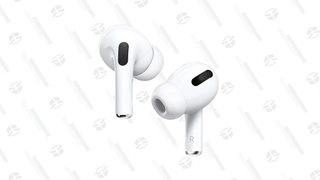Don’t know about you, but all the latest reports aboutthe bacteria your house is filled with,以及您家中最令人恶心的海绵,使我看着那个黄色的小矩形,有着相当多的侧眼。是的,我仍然使用海绵清洁菜肴或擦拭桌子和柜台,但是要花多少钱?在将它们扔出去之前,我可以安全地使用它们?微波炉是否可以帮助他们持续更长的时间?将它们放在洗碗机中进行消毒呢?还是我应该更频繁地抛弃它们,使我的年度海绵预算大大增加?
Distraught and confused, I turned to some experts. First, I went with the earth-friendly angle, asking advice from Aaron Durnbaugh, director of sustainability at Loyola University Chicago. He tried to assuage my fears by pointing out the positives of bacteria: “Don’t forget, many bacteria are useful. If we get too over-the-top with anti-bacterials, we can also create problems with our immune systems and our gut health.” Still, for my sponges, he offered that “microwaving them is supposed to be effective at sterilizing them. Of course, nothing metal, and slightly damp so they don’t melt. Two minutes or so.” That said,thisNew York Time去年的文章states microwaving can only be so effective—it’ll “nuke the weak ones, but the strongest, smelliest and potentially pathogenic bacteria will survive.” But fortunately, Durnbaugh said, “I suppose you could also drop them in boiling water, which is kind of the same thing. The dishwasher is probably just like sending them to the spa.”
For more background, I went to the experts at a nationwide cleaning service. A contact at the firm’s local office told me that their cleaners use basic cleaning products like “vinegar and soap and water,” as well as mildew remover to kill germs in the kitchen and bath. They do use sponges, as well as microfiber towels, but throw them out daily, after only two or three houses. By my calculations, that housekeeping math works out to about a week of cleaning my own kitchen (and we don’t have to remind you to keep your kitchen and bathroom sponges separate, right?)
Solid advice, but I still felt like I needed info from a bacteria expert, so I contacted Erica Smith, former research faculty at Northwestern with 20 years of biomedical research experience, and a Ph.D. in biochemistry and molecular biology. She considers herself a “microbe enthusiast.” Unfortunately for me, she was also not a fan of sponges in general. “If you are concerned about bacterial contamination in your kitchen, don’t use a kitchen sponge. The nooks and crannies of the sponge are equivalent to those of an English muffin… but for bacteria instead of butter.”
最后的评论使我想将目前的海绵扔进垃圾箱。但是她补充说:“如果您确实使用海绵,每次使用后将其拧干,以便迅速干燥并每周更换它。为了消毒,我的猜测是洗碗机比微波炉更有效。我曾经在洗碗机中“消毒”的婴儿瓶和抽水材料,因为高温延长。微波炉消毒受您消毒的大小的限制,并且可能需要比您想象的更长的时间(例如,考虑如何除霜肉)。我有时会将海绵浸入醋中,但没有科学证据来支持该方法的功效。”
If I decide to forego sponges altogether, then, how should I be cleaning my house? As a first line of defense—just basic hand-washing—Smith recommends warm water and soap. Like the cleaning service, she favors natural, non-fussy cleaners; after the soap, “maybe vinegar, alcohol, bleach.” She suggested using a clean dish cloth or towel with vinegar for each cleaning, then throwing it in the laundry.
A more stringent method would be to use alcohol (70 percent or higher). An even more stringent method would be to use 10 percent bleach, which she recommends for serious germaphobes. Smith cautioned against using antibacterial wipes—“bad for the environment (and unnecessary)”—as well as leaving dirty dishes in the sink. If you do so even for longer than a few hours, “The bacteria are likely to proliferate, and then if you use a sponge to clean those dishes and then wipe down all the over surfaces in your kitchen… you are just painting your kitchen with bacteria.” Uuuuuhhh, I have done that probably so many times. Maybe I should just move.
Smith points out that time is really the key factor. The longer a surface is dirty and moist and warm, the more suitable it is for bacterial proliferation. She added, “The one thing I do religiously is to use a separate, clean cutting board for meat and then wash immediately.”
She made me feel a bit better when she confided, “Having said all that, I have a pile of dirty dishes in and around my sink and two sponges (one really old for ‘dirty’ jobs, like cleaning out my compost pail, and one moderately old for regular dishwashing). So clearly I’m not too worried about bacterial proliferation and food borne illness.”
很高兴知道。但是,根据所有这些新信息,我的新家政习惯现在将包括:更严格地拧紧我的海绵,保持我的水槽不含菜肴,尝试使用厨房毛巾,然后将我的海绵扔在每周basis. At least.












